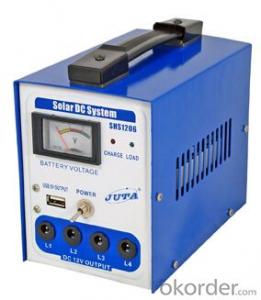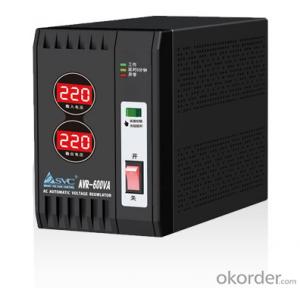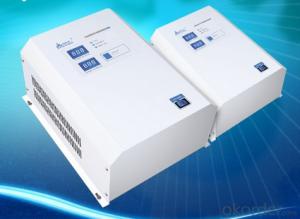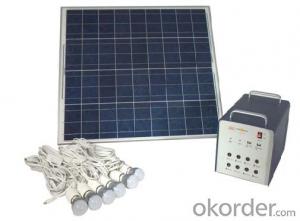Solar Energy Systems Idaho - Waterproof American Standard Extension Electrical Switch Socket
- Loading Port:
- China main port
- Payment Terms:
- TT OR LC
- Min Order Qty:
- 30 carton
- Supply Capability:
- 10000 carton/month
OKorder Service Pledge
Quality Product, Order Online Tracking, Timely Delivery
OKorder Financial Service
Credit Rating, Credit Services, Credit Purchasing
You Might Also Like
American Waterproof Standard Extension Electrical Switch Socket
Product Description

1. Wide range of input voltage
2. Provides stable output voltage and overload protection(Optional)
3. Provides over-voltage and overload protection(Optional)
4. 3-steps time delay function protects the comptessor against any consecutive starts (Optional)

| Model | G-2006 | G-4006 |
| Voltage range | 180-245Vac | |
| Current | 10A | |
| Insulation voltage-withstand | 1500 / 1min 2000V 3sec | |
| Insulation resistance | ≥100 | |
| Power cord | Cross-sectional area:3*0.75 | |
| Operating life | 10000 times | |
| Net weight (kg) | 0.55 | |
| Environment | Temperature 0℃~40℃ | |
- Q: Are there any disadvantages of solar energy systems?
- Yes, there are a few disadvantages of solar energy systems. Firstly, the initial installation cost can be high, making it less accessible for some individuals or communities. Secondly, solar panels require a large surface area to produce a significant amount of energy, which might be challenging in urban or limited space environments. Additionally, solar energy generation is dependent on sunlight, so it may not be as reliable during cloudy days or at night without the use of storage systems. Finally, the production and disposal of solar panels can have environmental impacts, particularly if not handled properly. However, despite these drawbacks, the benefits of solar energy, such as its renewable nature and reduced environmental impact, outweigh the disadvantages, making it a viable and increasingly popular energy option.
- Q: Are there any health risks associated with solar energy systems?
- There are minimal health risks associated with solar energy systems. The main concern is the potential for electric shock or fire hazards during installation or maintenance if proper safety precautions are not followed. However, with proper installation and regular maintenance, these risks can be effectively mitigated. Additionally, some solar panels contain small amounts of hazardous materials, such as lead or cadmium, but they are typically sealed and pose no risk unless the panels are damaged or improperly disposed of. Overall, when installed and maintained correctly, solar energy systems are safe and environmentally friendly.
- Q: Can a solar energy system be installed on a military base or facility?
- Yes, a solar energy system can be installed on a military base or facility. In fact, many military bases around the world have already embraced solar energy as a reliable and sustainable source of power. These systems can help reduce dependency on fossil fuels, lower operational costs, and enhance energy security for military operations. Additionally, solar installations on military bases contribute to the overall goal of transitioning to clean and renewable energy sources.
- Q: Are there any government incentives or tax credits for installing a solar energy system?
- Yes, there are government incentives and tax credits available for installing a solar energy system. These incentives and credits vary by country and region, but they often include federal tax credits, state or local rebates, grants, and incentives that aim to promote the adoption of renewable energy sources. It is advisable to research and consult with local authorities or a tax professional to determine the specific incentives and credits available in your area.
- Q: Can a solar energy system be installed in a remote location without access to the electrical grid?
- Yes, a solar energy system can be installed in a remote location without access to the electrical grid. Solar energy systems consist of solar panels, batteries, and inverters, which can generate and store electricity from the sun's energy. This self-contained system can provide power to remote locations, allowing them to operate independently of the electrical grid.
- Q: What is the role of solar energy in achieving energy independence?
- Solar energy plays a crucial role in achieving energy independence by providing a clean, renewable, and abundant source of power. It reduces our dependence on fossil fuels, mitigates climate change, and promotes sustainability. Solar power empowers individuals, communities, and even entire nations to generate their own electricity, reducing reliance on imported energy and creating a more resilient and self-sufficient energy system.
- Q: Can solar energy systems be used for powering electric bikes?
- Yes, solar energy systems can be used to power electric bikes. Solar panels can be installed on the roofs of houses or on specific structures to harness sunlight and convert it into electricity. This electricity can then be used to charge the batteries of electric bikes, providing a renewable and sustainable source of power for transportation.
- Q: Can solar energy systems be used in areas with limited access to training programs?
- Yes, solar energy systems can be used in areas with limited access to training programs. While training programs can provide valuable knowledge and skills in installing and maintaining solar energy systems, there are alternative resources available. Online courses, instructional videos, and manuals can offer self-learning opportunities for individuals in areas with limited access to training programs. Additionally, local technicians with expertise in solar energy can be trained to support the installation and maintenance of these systems, ensuring the utilization of solar energy even in areas with limited training resources.
- Q: Can solar energy be used for heating?
- Yes, solar energy can be used for heating. Solar thermal systems can capture the sun's energy and convert it into heat, which can be used for heating water, spaces, and even for industrial processes.
- Q: How do solar energy systems impact the reliability of electricity supply during blackouts?
- Solar energy systems can significantly enhance the reliability of electricity supply during blackouts. By generating electricity from the sun, these systems operate independently of the grid and can continue to provide power even when the main power source fails. Additionally, when equipped with energy storage solutions, solar systems can store excess energy during the day and use it during blackouts, ensuring a continuous supply of electricity. Overall, solar energy systems contribute to a more resilient and reliable electricity infrastructure, reducing the impact of blackouts on consumers.
Send your message to us
Solar Energy Systems Idaho - Waterproof American Standard Extension Electrical Switch Socket
- Loading Port:
- China main port
- Payment Terms:
- TT OR LC
- Min Order Qty:
- 30 carton
- Supply Capability:
- 10000 carton/month
OKorder Service Pledge
Quality Product, Order Online Tracking, Timely Delivery
OKorder Financial Service
Credit Rating, Credit Services, Credit Purchasing
Similar products
Hot products
Hot Searches
Related keywords






















